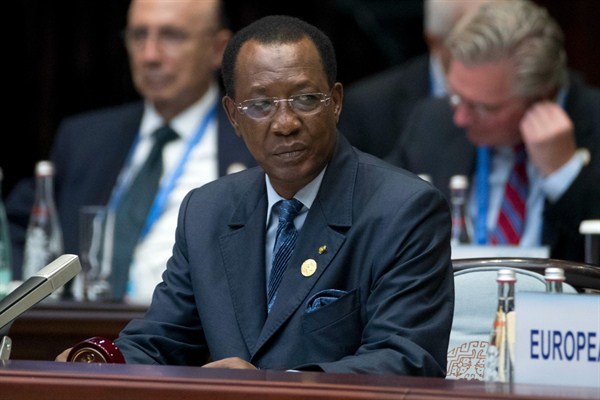On Monday, a spokesman for a civil society group in Chad called Iyina became the latest government critic to be detained by security forces. According to police, Alain Kembah Didah was caught with a bottle of gasoline in his hand, preparing to burn a tire as part of an anti-government protest. Didah has disputed this account, but that didn’t stop Chadian authorities from taking him into custody and, according to Amnesty International, beating him to the point where he could barely stand.
In Chadian Arabic, the name Iyina means “We’re fed up.” Its members aren’t the only ones who’ve been expressing that sentiment in recent years. During the nearly three decades President Idriss Deby has been in power, hopes for a free and open political and civic environment have never come close to materializing, while the country remains one of the poorest and least developed in the world.
For those actively trying to spur political change, the situation has worsened since the 2016 presidential election, a flawed contest that Deby won with more than 60 percent of the vote, securing a fifth term in office. On the rare occasions when protests are allowed to take place, security forces tend to break them up anyway, sometimes violently. Nevertheless, in the first months of this year, as economic hardships stemming from newly imposed austerity measures have grown starker, the capital, N’Djamena, has been hit with strikes and protests organized by an array of groups, among them civil servants, university students and taxi drivers. In response, security forces have lobbed tear gas to disperse gatherings and arrested students. Authorities have also embraced new tactics, including restricting internet access and, on Feb. 7, ordering the suspension of 10 opposition parties on the grounds that they were “disturbing public order.”

